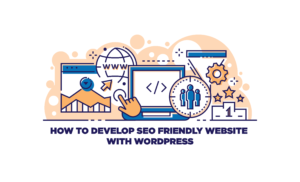Introduction to WordPress
WordPress is a content management system (CMS) that has revolutionized the way businesses and individuals create and manage websites. Launched in 2003, it initially started as a simple platform for blogging but has since evolved into a robust and versatile tool for a wide array of web applications. Today, WordPress powers over 43% of all websites on the internet, making it the most popular CMS worldwide.
The growth of WordPress can be attributed to its user-friendly interface, extensive customization options, and a supportive community of developers and users. This popularity is reflected in the substantial market share it commands, catering to everyone from large corporations to small businesses and freelance developers. Various types of websites, including e-commerce stores, portfolios, forums, and educational platforms, can all be built using WordPress, further reinforcing its reputation as an all-encompassing solution.
For businesses in today’s digital landscape, having a well-designed and functional website is crucial. With WordPress for business, companies can leverage its wide array of plugins and themes to create a unique online presence that aligns with their branding and functional needs. Furthermore, the flexibility of the WordPress CMS for companies enables organizations to easily adapt their sites as they grow or as industry trends evolve, ensuring sustainable growth and relevance.
As we explore the benefits of WordPress in more detail, it becomes evident that this platform not only meets the demands of diverse audiences but also provides an accessible avenue for businesses to establish their online identity effectively. Its capabilities to create engaging and fully functional websites demonstrate why choosing WordPress is a strategic move for any organization looking to thrive in the digital environment.
1. User-Friendly Interface
One of the primary reasons businesses opt for WordPress is its remarkably user-friendly interface, which simplifies the entire website management process. Companies, whether large or small, often face challenges associated with website administration, especially when personnel possess minimal technical expertise. This is where WordPress truly excels, offering a platform that individuals can navigate with ease and efficiency.
The dashboard is designed to be intuitive, providing users with an organized overview of their website’s performance and management options. From the dashboard, one can effortlessly access various functionalities such as content creation, media management, and site customization. This streamlined approach minimizes the learning curve, allowing businesses to focus on their core operations rather than getting bogged down by complex technicalities.
Moreover, the block editor introduces a modular way of content creation that further simplifies website editing. Users can drag and drop different content blocks to design their pages without needing extensive coding knowledge. This level of accessibility ensures that any team member, regardless of their technical background, can contribute to the content and design of the website, thereby enhancing collaboration and productivity.
The media library is another key feature that benefits users, enabling them to easily upload, organize, and manage images and documents. This makes it simple for businesses to maintain a visually appealing site that engages their audience. Overall, the advantages of WordPress as a content management system (CMS) are evident in its user-friendly features, allowing organizations to efficiently create, edit, and sustain their online presence with ease. By choosing WordPress, businesses can confidently navigate the digital landscape while ensuring a seamless user experience.
2. Cost-Effectiveness
When evaluating options for website development, one cannot overlook the compelling cost-effectiveness of choosing WordPress. As a free and open-source content management system (CMS), WordPress allows businesses of all sizes to launch their online presence without incurring licensing fees. This significantly reduces upfront investment costs compared to proprietary platforms, where upfront licenses can impose a considerable financial burden. The accessibility of WordPress means that startups and smaller businesses can harness the power of digital marketing without overextending their budgets.
While the WordPress platform itself is free, businesses should budget for associated costs such as web hosting, themes, and plugins. Hosting providers range in affordability, with options suitable for every budget, starting from a few dollars a month. On average, companies can expect to find reliable hosting plans for WordPress for business that offer sufficient resources for most business needs without breaking the bank. Additionally, a plethora of both free and premium themes enables companies to choose a design that aligns with their branding while maintaining control over costs.
Moreover, when examining the benefits of WordPress in terms of maintenance and ongoing costs, it becomes clear that this CMS typically offers lower expenses than many of its competitors. Custom development and specialized features can easily inflate costs on platforms that require extensive coding expertise. However, WordPress has a wealth of resources, including a dedicated community and plugins that provide functionality without the need for custom coding. This makes it easier for businesses to manage and update their websites, minimizing the need for ongoing developer support. Overall, the advantages of a WordPress website translate to significant cost savings over time, reinforcing its position as a top choice for commercial online strategies.
3. Versatile and Customizable Solutions
One of the primary reasons to choose WordPress for website development is its remarkable versatility and customization capabilities. This platform is not limited to a specific type of website; it can effectively cater to the needs of a broad spectrum of businesses. From blogs and portfolios to corporate sites and e-commerce stores, the flexibility of WordPress makes it an ideal choice for diverse applications.
WordPress boasts an extensive library of themes and plugins, empowering businesses to tailor their websites to reflect their unique branding and operational requirements. For example, a small bakery can use visually appealing themes coupled with a plugin for online ordering, while a tech company might need a more minimalist design accompanied by plugins for service showcases and client communication. These options allow businesses to create WordPress websites that stand out and meet specific customer demands, enhancing overall user experience.
Numerous real-world examples illustrate the adaptability of this platform. For instance, the popular musician Katy Perry utilizes WordPress for her official website, employing customized designs that resonate with her audience. Similarly, the global coffee chain Starbucks has a corporate site powered by WordPress, showcasing its various products and engaging content while maintaining brand integrity. These businesses highlight the benefits of WordPress in effectively communicating their brand message and maximizing functionality.
Moreover, companies benefit from a wealth of resources and community support when using WordPress CMS for companies. This vibrant ecosystem ensures that businesses can find solutions to various challenges and keep their websites running smoothly. With its continuous updates, WordPress remains a forward-thinking choice that adapts to technological advancements and evolving user needs.
4. SEO-Friendly Framework
WordPress is recognized as an exceptional platform for businesses aiming to enhance their online presence through effective website development. One of the primary reasons why choose WordPress is its SEO-friendly framework, which incorporates numerous features designed to promote search engine optimization. Clean permalink structures are a significant advantage in this context; they enable easy readability for both users and search engines, thus facilitating improved indexing. This feature allows businesses to customize URLs to reflect the content of the page, making it more appealing and relevant to search engines.
Additionally, WordPress provides robust tools for managing meta tags, which are crucial for optimizing content visibility. The capability to incorporate custom title tags and meta descriptions facilitates better alignment with targeted keywords, improving click-through rates from search engine results. For businesses looking to gain a competitive edge, the ability to finely tune these elements allows for a strategic approach to digital marketing and organic search traffic enhancement.
Moreover, the platform seamlessly integrates with popular SEO plugins, such as Yoast SEO. These plugins offer comprehensive tools that guide businesses in optimizing their content through real-time analysis and suggestions. Features such as readability scores, keyword density checks, and XML sitemap capabilities contribute to a more informed and effective SEO strategy. Such tools are particularly beneficial for companies aiming to navigate the complexities of search engine algorithms, helping them stay abreast of best practices.
Ultimately, the benefits of WordPress as a content management system (CMS) for companies extend past basic website functionalities. The SEO advantages empower businesses to not only enhance their site’s visibility but also engage with a broader audience through compelling and well-optimized content. This results in a significant impact on organic traffic and overall online success, positioning WordPress as a prime choice for business growth.
5. Strong Community Support
The WordPress platform is renowned not only for its user-friendly interface on the surface but also for the extensive community support that underpins it. Embedded within this community is a wealth of resources that cater to businesses utilizing the WordPress CMS for companies. This extensive network includes forums, documentation, and an array of tutorials which serve as crucial tools for troubleshooting and improving WordPress websites.
One of the significant advantages of choosing WordPress is the ability to connect with other users and developers. This community is an active participant in discussions around best practices and innovative techniques, making it easier for businesses to glean insights on optimizing their WordPress site. Forums are available where users can ask questions and obtain solutions not only from expert developers but also from fellow users who may have encountered similar challenges. The willingness of this community to share knowledge is a fundamental benefit of WordPress.
Moreover, the documentation provided by WordPress is thorough and continuously updated. This resource offers detailed information on every aspect of the platform, allowing businesses to understand functionalities and features fully. Such comprehensive documentation aids in reducing the learning curve often associated with new software, enabling companies to harness the benefits of WordPress more effectively.
Additionally, the large community means that businesses can readily find developers and agencies specializing in WordPress. Whether a company is looking to build a new site or enhance an existing one, finding the right expertise is essential. The availability of specialists in this niche ensures that businesses can locate the support they need, further emphasizing the advantages of choosing WordPress for business development.
6. Security Features and Regular Updates
When it comes to selecting a content management system (CMS) for business websites, security is paramount. One of the reasons to consider WordPress for business is its robust security features, which help protect sensitive information and maintain website integrity. WordPress is well-known for its commitment to security, and the development team regularly releases updates to address vulnerabilities and improve the platform’s security architecture. These updates are crucial for safeguarding a website from potential threats such as hacking and data breaches.
In addition to timely updates, businesses must prioritize secure hosting to enhance the overall safety of their WordPress website. A reputable web host offers essential security measures, including firewalls, malware scanning, and DDoS protection, which collectively work to create a secure environment for WordPress websites. By choosing a reliable hosting provider, businesses can ensure their website is resilient against potential cyber-attacks.
Furthermore, the availability of various security plugins adds an extra layer of protection for businesses utilizing WordPress. Plugins such as Wordfence and iThemes Security provide advanced features like real-time threat detection, login attempt monitoring, and firewall protection. These tools empower businesses to take charge of their website’s security and address vulnerabilities before they can be exploited.
Implementing best practices is essential for maintaining a secure WordPress environment. Regularly updating themes and plugins, using strong passwords, and implementing two-factor authentication are all effective strategies for safeguarding a WordPress website. By following these practices, businesses can significantly reduce their risk of falling prey to cyber threats. In conclusion, WordPress offers a comprehensive set of security features and regular updates that make it a reliable choice for companies concerned about their website’s protection.
7. Scalability for Future Growth
One of the most compelling advantages of using WordPress for business is its exceptional scalability, which is essential for any company anticipating growth. As businesses evolve, their digital presence must accommodate increases in traffic, a growing volume of content, and enhanced functionality. Fortunately, WordPress CMS for companies is equipped to handle these demands effectively.
Initially, WordPress websites can operate on shared hosting plans that are cost-effective for startups and smaller organizations. However, as traffic begins to increase, businesses can easily transition to more robust hosting solutions. These include virtual private servers (VPS) or dedicated hosting plans that provide greater resources and flexibility. This seamless upgrade path ensures that website performance remains steady, even during traffic spikes, thus enhancing the overall user experience.
Additionally, caching solutions can be implemented to improve the speed and efficiency of a WordPress site. By storing a static version of a webpage, caching reduces the load on the server and serves content to users more quickly. This is particularly beneficial during periods of high traffic, ensuring that visitors have a seamless experience, which is crucial for maintaining engagement and reducing bounce rates.
Furthermore, optimizing database performance is essential for managing an increasing volume of content. WordPress websites can incorporate various plugins aimed at database optimization, aiding in faster retrieval of information and maintaining a sleek performance even as the site expands. This allows for an ever-growing range of products, services, or articles without noticeable delays or disruptions to user access.
In conclusion, the scalability of WordPress for business is a key factor that supports companies as they grow and evolve. With flexible hosting options, effective caching solutions, and advanced database management tools, businesses can confidently enhance their online presence without sacrificing performance or user experience.
Conclusion: Your Path to a Successful Online Presence
In evaluating the landscape of website development, it becomes increasingly clear why choose WordPress as the platform of choice for businesses looking to establish a robust online presence. The extensive benefits of WordPress, including its user-friendly interface, versatility, and extensive plugin ecosystem, make it an ideal WordPress CMS for companies of all sizes. By opting for a WordPress website, businesses can easily tailor their online offerings to meet specific needs, enhancing customer engagement and satisfaction.
One of the standout advantages of using WordPress for business is its adaptability. Regardless of your industry or objectives, WordPress provides a flexible foundation that supports growth and innovation. This adaptability ensures that as businesses evolve, their websites can easily be updated and expanded to reflect changing priorities. Additionally, the vast community behind WordPress contributes to a wealth of resources, making it easier for businesses to find solutions and support when needed.
Another significant benefit of WordPress is its SEO-friendly architecture. A well-structured website is essential for improving visibility in search engine rankings, and WordPress inherently offers features designed to optimize content for search engines. Combined with plugins and tools that facilitate SEO best practices, businesses will find that utilizing WordPress greatly enhances their online discoverability.
Furthermore, the cost-effectiveness of developing a WordPress website cannot be overstated. As an open-source platform, WordPress significantly reduces the upfront investment required for website development while providing access to countless free themes and plugins, making it budget-friendly for small businesses and startups alike.
Ultimately, the advantages of using WordPress for businesses are clear and compelling. By selecting WordPress as the foundation for their online presence, companies position themselves for sustained growth and success within the dynamic digital landscape. With its extensive capabilities and supportive community, WordPress presents an invaluable opportunity for businesses to thrive online.








